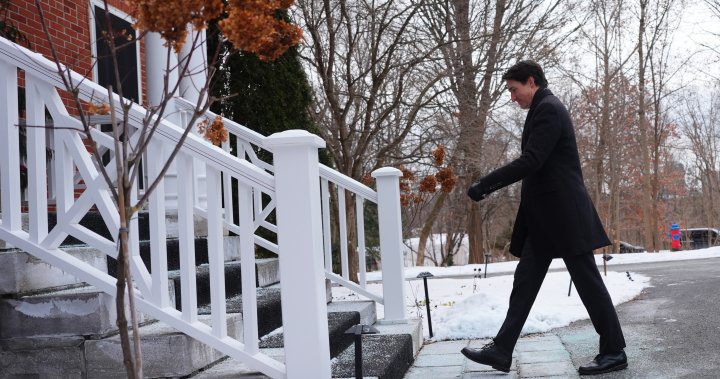Paragraph 1: Trudeau’s Departure and Leadership Transition
After twelve years leading the Liberal Party of Canada, Prime Minister Justin Trudeau announced his resignation, triggering a leadership race. Trudeau stated his intention to step down after the party chooses a new leader through a "robust nationwide competitive process." This decision followed mounting pressure and Trudeau’s acknowledgement that internal battles were hindering his ability to effectively lead the party into the next election. The Liberal Party’s board of directors will now initiate the leadership selection process, setting a date for the election and establishing a committee to oversee campaign finances, according to the party’s constitution.
Paragraph 2: Potential Contenders: Mark Carney
Speculation surrounding potential successors has centered around several prominent figures, including former Bank of Canada and Bank of England Governor Mark Carney. Trudeau’s prior acknowledgment of conversations with Carney about entering federal politics fueled these rumors. Reports suggest Carney has been actively consulting with Liberal MPs, seeking advice and support for a potential leadership bid. Carney’s extensive experience in finance, including navigating the 2008 financial crisis, positions him as a strong economic voice. His previous service within Canada’s finance department adds to his political credentials. Following Trudeau’s announcement, Carney publicly thanked Trudeau for his service, further fueling speculation about his potential candidacy.
Paragraph 3: Potential Contenders: Chrystia Freeland
Another prominent figure in the leadership discussion is Chrystia Freeland, a long-serving Liberal MP and former Deputy Prime Minister and Finance Minister. Freeland’s extensive ministerial experience, including portfolios in international trade, foreign affairs, and intergovernmental affairs, showcases her breadth of knowledge and political acumen. Her prominent role in Canada’s response to the war in Ukraine, coupled with her Ukrainian heritage and fluency in the language, adds a unique dimension to her profile. However, Freeland’s recent resignation from cabinet, citing differences with Trudeau over fiscal policy, raises questions about her relationship with the outgoing leader and potential support within the party. While some view her as a potential successor, others express reservations about her popularity and the circumstances surrounding her departure.
Paragraph 4: Potential Contenders: Dominic LeBlanc
Dominic LeBlanc, a seasoned Liberal MP and current Finance Minister, also emerges as a potential contender. LeBlanc’s deep roots within the party, coupled with his experience holding multiple cabinet portfolios, position him as a familiar and experienced figure. Having previously run for the Liberal leadership in 2008, LeBlanc possesses firsthand knowledge of the process. His loyalty to Trudeau, evident in his past support for Trudeau’s leadership bid, could translate into support from existing party members. LeBlanc’s personal story, as a two-time cancer survivor and son of a former Governor General, adds a human dimension to his political profile.
Paragraph 5: Potential Contenders: Christy Clark and François-Philippe Champagne
Beyond established federal figures, speculation extends to individuals outside the current parliamentary landscape. Former British Columbia Premier Christy Clark has openly expressed interest in participating in discussions about the party’s future direction, fueling speculation about a potential leadership bid. Clark’s experience as a provincial leader, coupled with her reported French language studies, suggests a potential interest in transitioning to the federal stage. François-Philippe Champagne, the current Minister of Innovation, Science and Industry, represents another potential contender. Champagne’s steady rise within the Trudeau government, including key roles in infrastructure, foreign affairs, and innovation, positions him as a rising star within the party. His experience with national security issues and critical minerals development adds a layer of expertise relevant to current global challenges.
Paragraph 6: The Road Ahead and Mélanie Joly’s Potential
The Liberal Party now faces the task of selecting a new leader who can navigate a complex political landscape and lead the party into the next federal election. The leadership race will likely involve a period of intense campaigning, debates, and internal party maneuvering. The candidates will need to articulate their vision for the party and the country, addressing key issues such as the economy, climate change, healthcare, and social justice. Another potential candidate is Mélanie Joly, current Minister of Foreign Affairs. Joly has held various cabinet positions, including Minister of Canadian Heritage, Tourism, and Economic Development. Her current role as foreign minister has given her significant international experience, navigating complex geopolitical challenges. While not as prominently discussed as some other potential contenders, Joly’s diverse experience and current high-profile position make her a potential dark horse in the leadership race. The outcome of this leadership election will significantly shape the future of the Liberal Party and Canadian politics.

